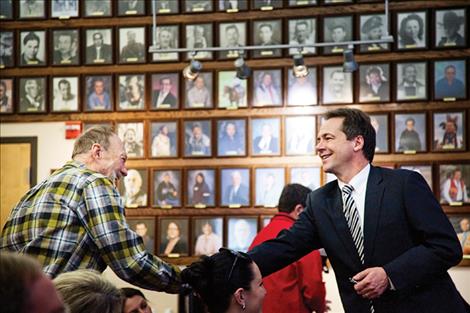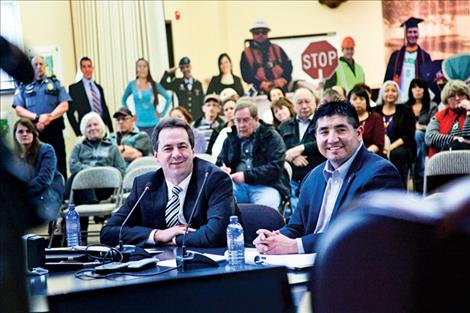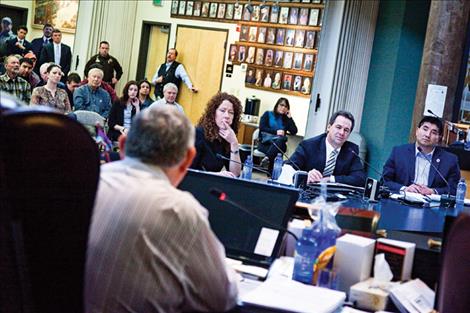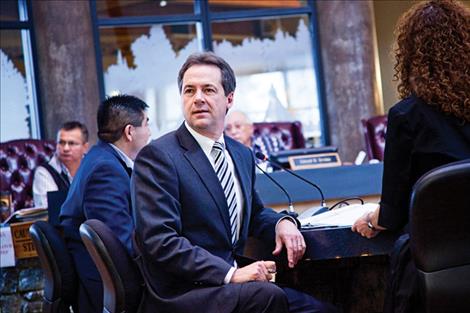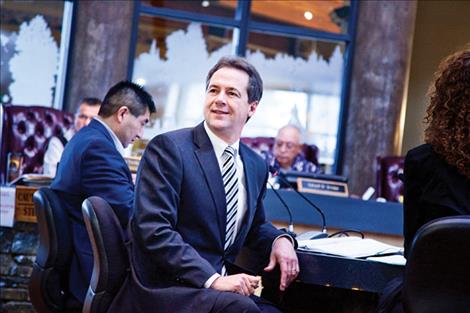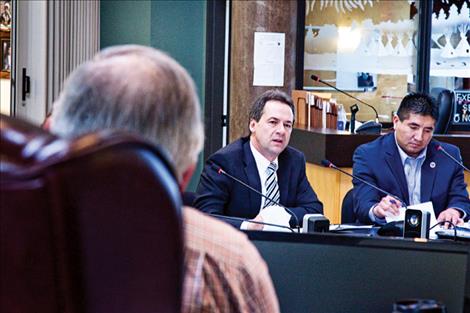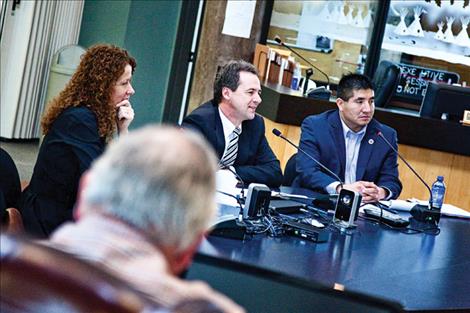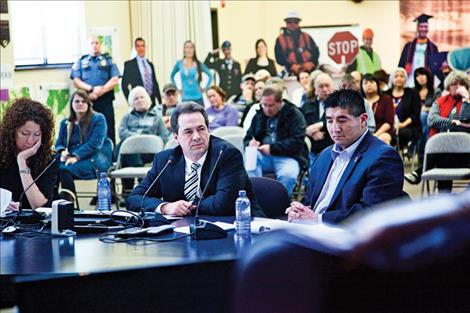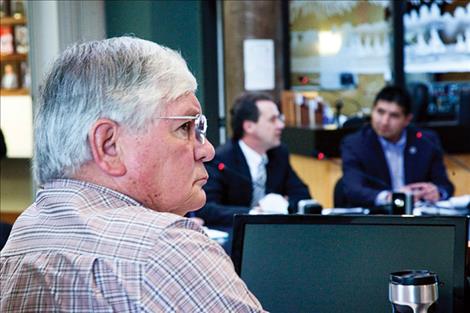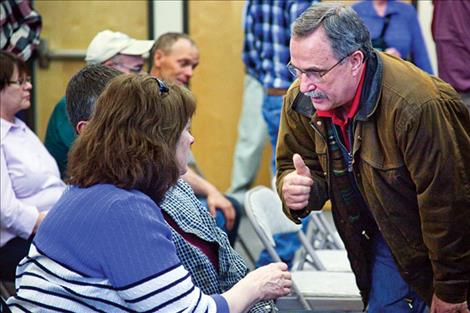Governor confident compact will pass
Hey savvy news reader! Thanks for choosing local.
You are now reading
1 of 3 free articles.
Governor Steve Bullock predicted the Confederated Salish and Kootenai Water Compact will pass the legislative session after a more intense fight in the House of Representatives than was seen in the Montana Senate in February.
Bullock spoke with tribal councilmembers Friday in Pablo about the compact and other legislative issues.
The compact, which will cost $55 million and settle all water claims for the Confederated Salish and Kootenai Tribes if passed, has been one of the most contentious pieces of legislation this session. The compact was reworked after a previous agreement failed in the 2013 legislative session. It is the result of more than a decade of negotiation between the state, federal, and tribal government. If the document is passed, it must also be ratified by the United States Congress and the tribal government to go into effect. If the compact is not passed by a state-imposed June 30 deadline, the Tribes will be forced to file their claims in Montana Water Court, and tribal government has indicated as many as 10,000 claims could be filed.
“It passed on a pretty significant bi-partisan basis, 31-19 through the Senate,” Bullock said. “I think that this is a fair deal. I wouldn’t have gotten involved in it if it wasn’t a fair deal, and I appreciate the tribal government coming back to the table and figuring out a way that we could move forward. I am filled with confidence and optimism that once we get it to the House floor, it will indeed pass.”
Bullock said passing the compact is imperative not only for the residents of the Flathead Reservation, “but indeed, for around the state,” Bullock said. “I do expect that we set politics aside and get the right things done, not only for this generation, but this next, and do I expect that that will get done.”
Vice Chair of the Confederated Salish and Kootenai Tribes Carole Lankford said she is also ready for the compact to pass.
“The Salish, Kootenai, and Pend d’Oreille people are honorable, respectful people,” Lankford said. “We look out at this room and we look at our neighbors. Everyone here is our neighbors. Everyone out there is our neighbors. Why would we hurt them? This compact is a good deal and we just want to get it moved forward.”
Lankford said the negotiation with the state and federal government was long and arduous, and not everyone could see the finish line at first.
“I remember 20 years ago when we started bringing in the water measurement people,” Lankford said. “It could have been 25 years, now, but I couldn’t figure out why are we doing this. I wondered and thought that it seemed like a waste of money. Now I see why this tribe did that. I see that the leaders were on top of things way back then.”
Lankford also thanked people, tribal and non-tribal, who came to support the compact.
“It makes me feel good because now I can look out at the audience and I can consider everybody out there my friend,” Lankford said.
No opposition was voiced at the meeting, but Lankford acknowledged that it was out there, as it is on many issues that have to be worked out between the tribes and state.
“It seems like every issue we deal with whether it’s the Fish and Wildlife agreement, shoreline protection, everyone’s been a fight,” Lankford said. “So if someone said, ‘Everyone all agrees,” I would get suspicious and say ‘I don’t know. It’s probably not a good idea.’”
The final public hearing on the water compact before it goes to a state vote is set for April 11 in Helena.















